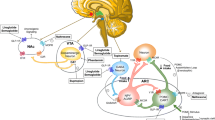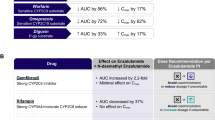Abstract
Background
Androgen deprivation therapy (ADT) for prostate cancer is associated with adverse effects, such as obesity and metabolic syndrome, which increase cardiovascular risk, the most common cause of non-cancer mortality in men diagnosed with prostate cancer. The Comprehensive Lifestyle Improvement Program for Prostate Cancer (CLIPP) was created to determine the feasibility of conducing a comprehensive lifestyle modification intervention in men on ADT for prostate cancer and determine its early efficacy in reducing obesity and metabolic syndrome.
Methods
A single-arm, open-label clinical trial was conducted by recruiting 31 men diagnosed with prostate cancer and exposed to ADT within the last 5 years. A multicomponent lifestyle modification program was delivered weekly for 16 weeks by a trained health coach. This was followed by 8 weeks of passive follow-up resulting in a total trial duration of 24 weeks. Feasibility was determined by calculating study recruitment, retention, and adherence rates. Weight and components of metabolic syndrome (waist circumference, triglycerides (TG), high-density lipoprotein (HDL), serum glucose, and blood pressure (BP)) were measured at baseline, 12, and 24 weeks.
Results
Recruitment, retention, and adherence rates were 47.1%, 90.3%, and 100%, respectively. Statistically significant improvements were noted between baseline and end of study measurements for weight (206.3 vs. 191.3 lbs, p < 0.001), waist (41.3 vs. 38.8 inches, p < 0.001), systolic BP (144.1 vs. 133.4 mm of Hg, p = 0.014), diastolic BP (83.3 vs. 76.2 mm of Hg, p = 0.0056), TG (146.0 vs. 113.8 mg/dl, p = 0.022), HDL (51.1 vs. 55.0 mg/dl, p = 0.012), and serum glucose (114.0 vs. 103.2 mg/dl, p = 0.013).
Conclusion
CLIPP demonstrates feasibility and early efficacy of a multicomponent lifestyle modification intervention toward addressing obesity as well as components of metabolic syndrome in men on ADT for prostate cancer. This study provides strong preliminary data to develop future clinical trials in this population.


Similar content being viewed by others
References
Group USCSW. U.S. Cancer Statistics Data Visualizations Tool, based on 2019 submission data (1999-2017). Bethesda, Maryland: US Department of Health and Human Services, Centers for Disease Control and Prevention and National Cancer Institute; 2020.
Bolla M, Gonzalez D, Warde P, Dubois JB, Mirimanoff RO, Storme G, et al. Improved survival in patients with locally advanced prostate cancer treated with radiotherapy and goserelin. N Engl J Med. 1997;337:295–300.
D’Amico AV, Manola J, Loffredo M, Renshaw AA, DellaCroce A, Kantoff PW. 6-month androgen suppression plus radiation therapy vs radiation therapy alone for patients with clinically localized prostate cancer: a randomized controlled trial. JAMA. 2004;292:821–7.
Smith MR, Lee H, Fallon MA, Nathan DM. Adipocytokines, obesity, and insulin resistance during combined androgen blockade for prostate cancer. Urology. 2008;71:318–22.
Smith MR, Saad F, Egerdie B, Sieber PR, Tammela TL, Ke C, et al. Sarcopenia during androgen-deprivation therapy for prostate cancer. J Clin Oncol. 2012;30:3271–6.
Braga-Basaria M, Dobs AS, Muller DC, Carducci MA, John M, Egan J, et al. Metabolic syndrome in men with prostate cancer undergoing long-term androgen-deprivation therapy. J Clin Oncol. 2006;24:3979–83.
Yannucci J, Manola J, Garnick MB, Bhat G, Bubley GJ. The effect of androgen deprivation therapy on fasting serum lipid and glucose parameters. J Urol. 2006;176:520–5.
Alibhai SM, Breunis H, Timilshina N, Johnston C, Tomlinson G, Tannock I, et al. Impact of androgen-deprivation therapy on physical function and quality of life in men with nonmetastatic prostate cancer. J Clin Oncol. 2010;28:5038–45.
Knowler WC, Barrett-Connor E, Fowler SE, Hamman RF, Lachin JM, Walker EA, et al. Reduction in the incidence of type 2 diabetes with lifestyle intervention or metformin. N Engl J Med. 2002;346:393–403.
Harrigan M, Cartmel B, Loftfield E, Sanft T, Chagpar AB, Zhou Y, et al. Randomized trial comparing telephone versus in-person weight loss counseling on body composition and circulating biomarkers in women treated for breast cancer: the Lifestyle, Exercise, and Nutrition (LEAN) study. J Clin Oncol. 2016;34:669–76.
Algotar A, Hsu CH, Sherry Chow HH, Dougherty S, Babiker HM, Marrero D, et al. Comprehensive Lifestyle Improvement Program for Prostate Cancer (CLIPP): protocol for a feasibility and exploratory efficacy study in men on androgen deprivation therapy. JMIR Res Protoc. 2019;8:e12579.
Huffman MH. Advancing thE Practice of Health Coaching: Differentiation from Wellness Coaching. Workplace Health Saf. 2016;64:400–3.
Alberti KG, Eckel RH, Grundy SM, Zimmet PZ, Cleeman JI, Donato KA, et al. Harmonizing the metabolic syndrome: a joint interim statement of the International Diabetes Federation Task Force on Epidemiology and Prevention; National Heart, Lung, and Blood Institute; American Heart Association; World Heart Federation; International Atherosclerosis Society; and International Association for the Study of Obesity. Circulation. 2009;120:1640–5.
Yunfeng G, Weiyang H, Xueyang H, Yilong H, Xin G. Exercise overcome adverse effects among prostate cancer patients receiving androgen deprivation therapy: An update meta-analysis. Medicine. 2017;96:e7368.
Bourke L, Doll H, Crank H, Daley A, Rosario D, Saxton JM. Lifestyle intervention in men with advanced prostate cancer receiving androgen suppression therapy: a feasibility study. Cancer Epidemiol Biomark Prev. 2011;20:647–57.
Bourke L, Gilbert S, Hooper R, Steed LA, Joshi M, Catto JW, et al. Lifestyle changes for improving disease-specific quality of life in sedentary men on long-term androgen-deprivation therapy for advanced prostate cancer: a randomised controlled trial. Eur Urol. 2014;65:865–72.
O’Neill RF, Haseen F, Murray LJ, O’Sullivan JM, Cantwell MM. A randomised controlled trial to evaluate the efficacy of a 6-month dietary and physical activity intervention for patients receiving androgen deprivation therapy for prostate cancer. J Cancer Surviv. 2015;9:431–40.
Livingston PM, Craike MJ, Salmon J, Courneya KS, Gaskin CJ, Fraser SF, et al. Effects of a clinician referral and exercise program for men who have completed active treatment for prostate cancer: a multicenter cluster randomized controlled trial (ENGAGE). Cancer. 2015;121:2646–54.
Monga U, Garber SL, Thornby J, Vallbona C, Kerrigan AJ, Monga TN, et al. Exercise prevents fatigue and improves quality of life in prostate cancer patients undergoing radiotherapy. Arch Phys Med Rehabil. 2007;88:1416–22.
Segal RJ, Reid RD, Courneya KS, Sigal RJ, Kenny GP, Prud’Homme DG, et al. Randomized controlled trial of resistance or aerobic exercise in men receiving radiation therapy for prostate cancer. J Clin Oncol. 2009;27:344–51.
Carmody J, Olendzki B, Reed G, Andersen V, Rosenzweig P. A dietary intervention for recurrent prostate cancer after definitive primary treatment: results of a randomized pilot trial. Urology. 2008;72:1324–8.
Pettersson A, Nygren P, Persson C, Berglund A, Turesson I, Johansson B. Effects of a dietary intervention on gastrointestinal symptoms after prostate cancer radiotherapy: long-term results from a randomized controlled trial. Radiother Oncol. 2014;113:240–7.
Bosco C, Bosnyak Z, Malmberg A, Adolfsson J, Keating NL, Van Hemelrijck M. Quantifying observational evidence for risk of fatal and nonfatal cardiovascular disease following androgen deprivation therapy for prostate cancer: a meta-analysis. Eur Urol. 2015;68:386–96.
Nguyen PL, Je Y, Schutz FA, Hoffman KE, Hu JC, Parekh A, et al. Association of androgen deprivation therapy with cardiovascular death in patients with prostate cancer: a meta-analysis of randomized trials. JAMA. 2011;306:2359–66.
Funding
The American Cancer Society—Institutional Research Grant.
Author information
Authors and Affiliations
Corresponding author
Ethics declarations
Conflict of interest
The authors declare no competing interests.
Additional information
Publisher’s note Springer Nature remains neutral with regard to jurisdictional claims in published maps and institutional affiliations.
Rights and permissions
About this article
Cite this article
Algotar, A.M., Hsu, C.H., Chow, HH. et al. Comprehensive Lifestyle Improvement Program for Prostate Cancer (CLIPP) is associated with improvement in weight and components of metabolic syndrome in men exposed to androgen deprivation therapy for prostate cancer. Prostate Cancer Prostatic Dis 24, 903–909 (2021). https://doi.org/10.1038/s41391-021-00346-z
Received:
Revised:
Accepted:
Published:
Issue Date:
DOI: https://doi.org/10.1038/s41391-021-00346-z
- Springer Nature Limited
This article is cited by
-
Working hard or hardly working? A brief commentary of latest research on exercise and prostate cancer
Prostate Cancer and Prostatic Diseases (2023)
-
Cardiovascular adverse events-related to GnRH agonists and GnRH antagonists: analysis of real-life data from Eudra-Vigilance and Food and Drug Administration databases entries
Prostate Cancer and Prostatic Diseases (2023)
-
A healthy diet, a healthy prostate? A brief commentary on the latest research on diet and prostate cancer
Prostate Cancer and Prostatic Diseases (2023)
-
From molecular mechanisms of prostate cancer to translational applications: based on multi-omics fusion analysis and intelligent medicine
Health Information Science and Systems (2023)
-
Feasibility of home-based exercise training during adjuvant treatment for metastatic castrate-resistant prostate cancer patients treated with an androgen receptor pathway inhibitor (EXACT)
Supportive Care in Cancer (2023)




